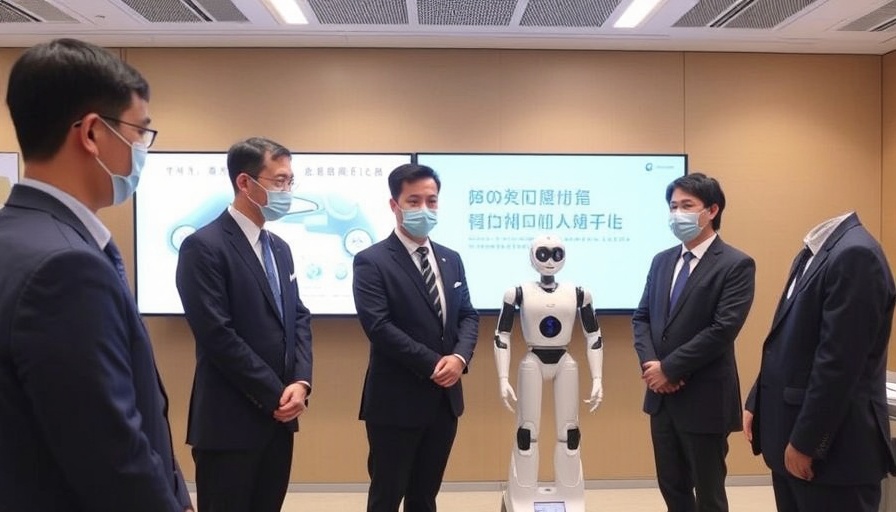
Yonsei University Reinvents Medical Training with Robotics
In a significant leap forward for healthcare innovation, Yonsei University Health System (YUHS) has officially relaunched its medical robot training center. This expansion, now known as the Korea Medical Robot Center (KMRC), is a part of the government’s Domestic Medical Device Education and Training Support Center project, aimed at enhancing the skills of healthcare professionals across a spectrum of AI-powered medical technologies.
The Role of Technology in Modern Healthcare
The integration of technology such as robotic systems and AI applications is revolutionizing healthcare provision and education. YUHS's KMRC is designed not only to train medical professionals on surgical robots but also to accommodate emerging AI technologies and rehabilitation robots. The ultimate goal is to empower clinicians and improve patient outcomes through enhanced training methodologies and advanced tools.
AI-Powered Diabetes Management: A Case in Point
In a similar vein of technological innovation, Tan Tock Seng Hospital has unveiled an AI-powered mobile diabetes management application, CARB-CGM. This app integrates with continuous glucose monitors to provide real-time glucose readings. With AI-driven features, it estimates meal carbohydrate content and personalizes insulin recommendations. Such advancements not only illustrate the rise of technology in patient care but also highlight the importance of education in utilizing these tools effectively.
Educational Support for Medical Professionals
The initiative by YUHS comes at a time when enhancing physician skillsets is paramount. The training center aims to facilitate learning through hands-on experiences with various medical devices including those used in surgeries like spinal, cardiovascular, and neurological interventions. Part of the program includes traveling abroad to partner companies to observe best practices and technological advancements, thus enriching the educational experience.
Future Trends in Medical Robotics Training
As the medical field continues to evolve, the future of robotics in surgery is promising. Projections indicate that the integration of generative AI, particularly in surgical planning and execution, could enhance decision-making capabilities and patient safety. The KMRC at YUHS aspires to be at the forefront of these advancements, positioning itself as a leader not just within Korea but on the global stage as well.
Insights from Global Health Experts
Leaders in the field, including experts from Severance Hospital, believe that robotic surgeries will become commonplace in various specialties. With a commitment to research and innovation in medical devices, institutions like YUHS and Severance are paving the way for future generations of healthcare professionals. They emphasize collaboration with industry partners to implement state-of-the-art technology that reduces costs and improves care availability.
A Shift in Healthcare Dynamics
This shift toward AI and robotics in hospitals signifies a broader trend of digital transformation in healthcare. The collaboration between hospitals and tech companies paves the way for developing integrated solutions to common medical challenges. As healthcare continues to face rising demand, affordability, and quality concerns, these advancements are critical to sustainable improvements in patient care.
Why This Matters for Business and Technology Leaders
CEOs and marketing managers in tech-driven sectors should take note of the rapid advancements in health technology. The ongoing evolution in medical training not only prepares practitioners for future challenges but also opens new avenues for technology integration in health services. Understanding these shifts allows business leaders to align their strategies with the changing landscape of healthcare, fostering collaboration opportunities for technology deployment.
Take Action: Explore Opportunities
The advancements in healthcare technology present unique opportunities for both businesses and professionals alike. By investing in educational resources, partnerships, and development of innovative technologies, you too can contribute to shaping the future of healthcare. Engage with local institutions, participate in discussions on the future of medical training, and stay abreast of emerging trends that could redefine care delivery.
 Add Row
Add Row  Add
Add 




 Add Row
Add Row  Add
Add 

Write A Comment